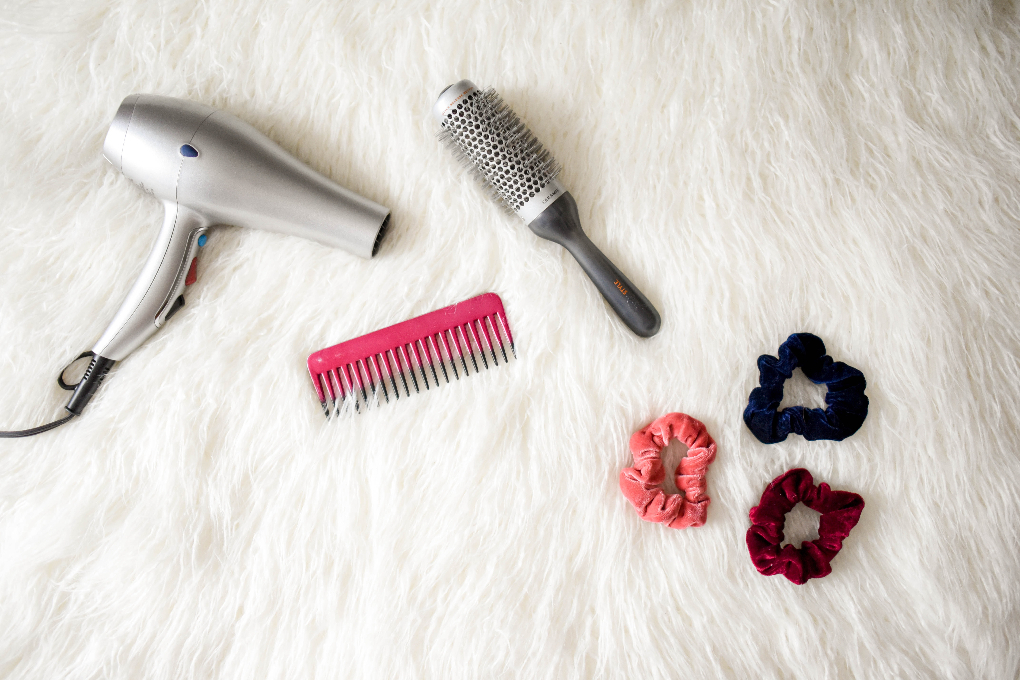Let’s be real—hair is one part of our appearance that we’re always conscious about and, sometimes, even on the best days, a bad hair day has the power to ruin our mood.The average adult head has about 100,000 to 150,000 hairs and loses up to 100 of them a day. So, it’s not a big deal if you find some strands falling here and there. That being said, it’s important to understand the signs that you may have a serious hair loss problem.


Symptoms of hair fall:
Gradual thinning on top of the head: This is the most common type of hair loss affecting women as they age.Circular or patchy bald spots: Some people experience smooth, coin-sized bald spots. This type of hair loss usually affects just the scalp, but it sometimes also occurs in eyebrows. In some cases, your skin may become itchy or painful before the hair falls out.Sudden loosening of the hair: A physical or emotional shock can cause hair to loosen. Handfuls of hair may come out when combing or washing your hair or even after gentle tugging. This type of hair loss usually causes overall hair thinning and not bald patches.Patches of scaling across the scalp: t is a sign of ringworm and may be accompanied by broken hair, redness and swelling.
Causes of hair fall:
- Sex hormones: Abnormal levels of androgens (male hormones), linked to Polycystic Ovarian Syndrome (PCOS) can play a major role in hair loss in women. Hormonal changes after pregnancy and menopause.
- Family history: Genes from both male and female parents, may influence a person’s predisposition to female pattern baldness.
- Stress: Indian women today face much higher levels of stress as compared to men due to social and psychological factors. According to the Bangalore Mirror, it is estimated around 20 per cent of Indian women experience hair loss before they are 30. This is even more pronounced for working women who work long hours. Stress may also trigger scalp problems, such as dandruff, disrupt eating habits and mess with the digestive system which is not good for the hair.
- Drugs: Birth control pills, chemotherapy drugs, blood thinners, and beta-adrenergic blockers used to control blood pressure, can cause temporary hair loss
- Hair grooming habits: Shampooing too often, perms, bleaching, and dyeing hair can contribute to overall hair thinning by making hair weak and brittle. Indian women tend to tie up their hair very tightly in braids and weaves and this may also increase hair fall.
- Medical conditions: Severe hyperthyroidism (excess thyroid hormones) or hypothyroidism (deficiency of thyroid hormones) can cause hair loss. Autoimmune diseases, in which the body’s immune system attacks healthy cells, are another major factor. Autoimmune thyroid disease and lupus are two such examples that contribute to hair loss. Finally, diabetes may also lead to hair fall.
- Diet: Significant weight loss and iron deficiency anemia (very common in Indian women) can trigger hair fall. A low-calorie diet and deficiency of nutrients such as proteins and vitamin B12 can also bring about severe hair loss.
Home remedies:
- Avoid tight hairstyles, such as braids, buns or ponytails and don’t twist or pull your hair compulsively.
- Treat your hair gently when washing and brushing. A wide-toothed comb may help prevent pulling out hair.
- Avoid harsh treatments such as curling irons, hot oil treatments, and permanent hair straightening.
- Maintain a healthy diet by controlling how much you eat and what foods you’re eating. Eating foods rich in vitamins B12 and B6 (e.g. fish, dairy products, eggs), folic acid (e.g. citrus foods, lentils like dal, beans), and protein (e.g. chicken, fish, soy products) can prevent hair fall.
- Manage stress by exercising, meditating, or practicing yoga regularly. Try to get 8-9 hours of sleep every night.
- Protect your hair from sunlight and other sources of ultraviolet light.
- Stop smoking.
Learn More with Veera Health
If you are experiencing PCOS-related hair fall and are not sure how to improve your scalp health, speak to our experts at Veera for personalised treatment. Stay healthy and share this with all your friends and family who need to see this. Talk to a dermatologist about keeping your crown healthy on Veera.
Disclaimer: Content on Veera is provided for informational purposes only and is not intended as medical advice, or as a substitute for medical advice given by a physician
References:Mayo Clinic:
https://www.mayoclinic.org/diseases-conditions/hair-loss/symptoms-causes/syc-20372926?p=1https://www.mayoclinic.org/diseases-conditions/hair-loss/symptoms-causes/syc-20372926




















